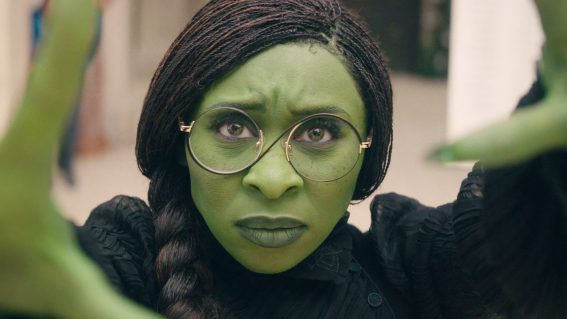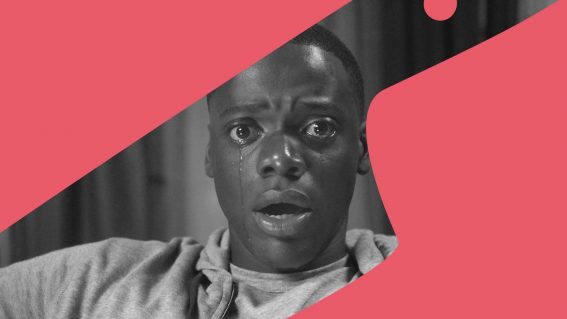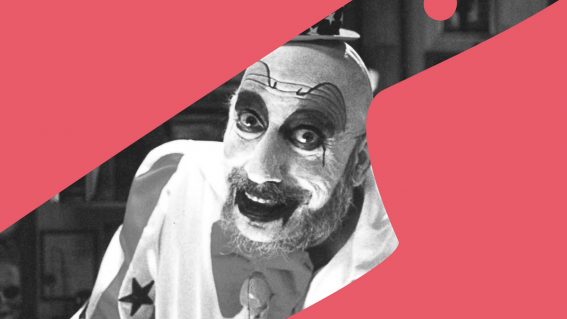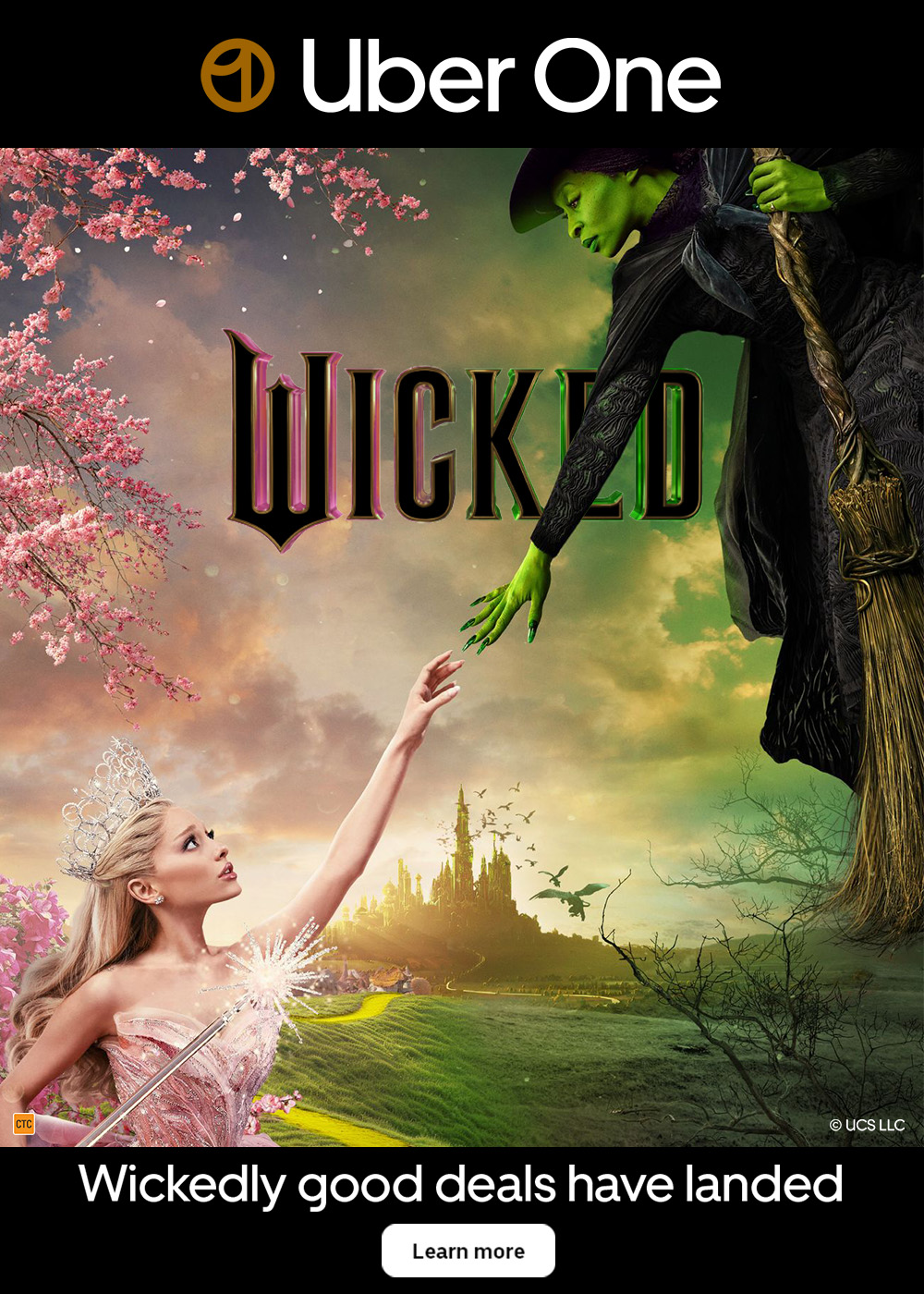I hated Spider-Man: Far From Home, until the villain blew me away
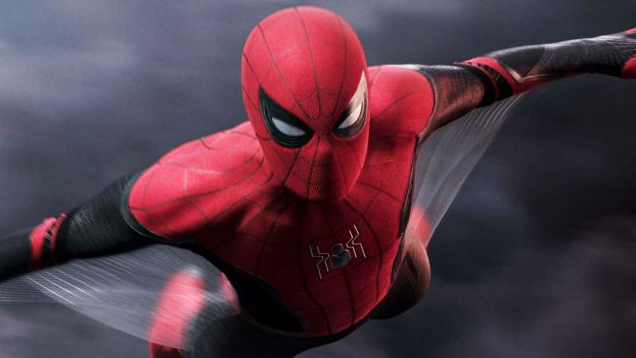
For a long time Spider-Man: Far From Home is unimaginative and dull as ditchwater, says Luke Buckmaster. But then the villain spectacularly saves it. There are spoilers ahead.
From its early moments Spider-Man: Far From Home makes it crystal clear that Avengers: Endgame, the supposed last hurrah of the Marvel Comics Universe, did not end anything. The titular web-slinger’s latest adventure expands the MCU timeline and continues the soap opera. Superhero wrangler Nick Fury (Samuel L. Jackson) is back, taking away Spider-Man’s individuality by reminding us that these days the iconic hero belongs to a cash-grabbing collective. A key story pivot involves what the protagonist should do with E.D.I.T.H., a powerful AI weapons and technology system bequeathed to him by Tony Stark.
There are derivative plots, and then, oh boy, there are plots as derivative as the woolgathering narrative sloshed together by co-screenwriters Chris McKenna and Erik Sommers. It revolves around a European trip undertaken by Peter Parker (Tom Holland) and his school chums, playing out like one of those soap opera or sitcom episodes in which the characters go on vacation, because the writers couldn’t think of anything better than khaki shorts and touristy backdrops.
Jake Gyllenhaal appears early in the piece, firing Hadoken-like green blasts out of his hands while wearing an aqua fish bowl over his head. He is Mysterio, whose nemesis is a huge monster formed of natural elements such as sand and water, rising like a globby CGI leviathan to create nondescript terror and carnage.
Mysterio has barely any character motivation, backstory or personality. And that huge blob-like thing he fights has absolutely none at all. Switching between scenes of adolescent banality (involving exciting issues such as who wants to sit next to who on the plane) and numbing spectacle, I found Spider-Man: Far From Home dull as ditchwater. And then, at about the halfway point, everything changed.
If you want to preserve a big plot twist, stop reading. You have been warned that significant spoilers will follow.
I am about to divulge a big twist regarding the true nature and identity of the villain. This bad guy single-handedly turns a lumbering movie into a thought-provoking and exciting blockbuster (at least intermittently). While hanging out with Mysterio at a bar, the fishbowl having finally defeated that faceless special effects blob, Spider-Man arrives at the conclusion that this handsome and brave fellow is the best person to continue Stark’s work. He decides to transfer ownership of the all-powerful E.D.I.T.H. over to a humbled and grateful Mysterio.
Then, when Spidey leaves the building, something unusual happens. About half the clientele in the bar disappear into thin air, as if belonging to a computer simulation. Mysterio delivers a triumphant speech to people who huddle around him, thanking them for this and that, in the style of a chuffed celebrity giving an acceptance speech at an awards ceremony.

The twist is that, instead of being a superhero, Mysterio is actually a thespian and illusionist. That huge monster he was fighting, in very public spaces, was just a trick of light and shadow, designed to impress Spider-Man so he could get access to E.D.I.T.H. The villain achieves this colourful phantasm using an army of flying drones equipped with projectors. They are to him what flying monkeys are to the Wicked Witch, though Mysterio is more like another character from Oz – the man behind the curtains, the supposed wizard himself, whose intimidating presence derives not from real power but from the carefully manufactured illusion of it.
It’s a shame that director Jon Watts cheats this premise by giving Mysterio powerful guns on each of his drones – detracting from the idea that this awesome mercenary is just a cunning actor reciting a script and flicking some switches. There are monstrously implausible scenes, with large scale illusions that could not possibly be carried out convincingly (and where is all that wind coming from??) but such quibbles are not in the spirit of things. Mysterio is a great villain because he understands the power that can be extracted by changing the parameters of reality.
This process is even more memorably evinced in the political career of Donald Trump, whose very existence seems to tinker on the precipice of reality, as if he beams into us from a multiverse world where he is the hero rather than a spray tanned villain. Trump’s claim that his Presidential inauguration attracted the largest turnout in history, despite hard evidence to the contrary, was a classic early instance in a pattern of, shall we say, liberation from truth. Some people will believe what he says and others won’t. The trick is to fool enough people enough times. At one point in Far From Home, Mysterio cries out: “People need to believe, and nowadays they will believe anything.”
But the big twist in this surprisingly audacious new Spider-Man movie, as good as it is, is bittersweet. The director inadvertently highlights audience antipathy as much as narrative ingenuity. How many MCU fans watched Mysterio’s moments of fake bombast and asked: where is the backstory? Where is the nuance? Why are we watching this dross? Close to none, I am willing to bet. They were numbed by this brand of ballistic pap a long time ago. Mysterio’s antics have a painful real-world truthfulness, in that his pyrotechnics are the same kind of empty spectacle deployed by the directors of MCU movies to keep audiences blinking in stupor.
Did a Marvel Comics Universe movie just get…self-reflexive? Did it just make a comment on the delusions and shortcomings of the elephantine franchise to which it belongs? On the era of post-truth? On the nature of simulations versus reality? One thing is for sure: Mysterio is a villain of the times, and for the ages.





